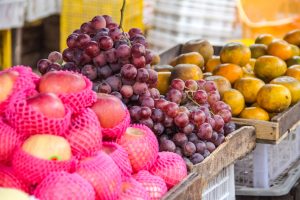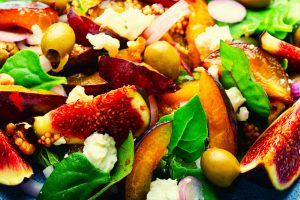Organic Food
Organic foods are all the rage today. If you’re a parent and have had come across multiple incidents where you have watched your child’s friends bring organic fruits for lunch, then you might have started doing some research. And, rightfully so. Organic foods come with a bunch of benefits for the body. While they are a bit costly, the advantages are sufficient enough to cover up for the hefty amount.
Let’s break it down, shall we. Here is all you need to know about organic foods and whether they are necessary.
What Are Organic Foods?
Before we dive into the importance of organic foods, let’s explore what organic food actually is. While there is a common misconception that all fresh fruits and vegetables at the farmer’s market is organic, the reality is a bit different. Organic foods in its essence consists of a mix of animal products and agricultural produce that is raised and grown in natural conditions. This means, the food is devoid of having been grown using herbicides, chemicals, synthetic fertilizers, bioengineered genes i.e. GMO and pesticides.
The Types
Organic foods are thus of two types. They can be in the form of fruits and vegetables or animal products and meat.
In the former type, the agricultural goods are produced using manure instead of synthetic fertilizers. Similarly, pesticides and herbicides are avoided and weeding is done manually by farmers using their hands. For pests, the use of certain birds, insects and mice traps are used. All this is done to ensure the fruits and vegetables are free from carcinogenic materials that can find their way into the human body and cause harm. Most cancers, diseases, and heart problems have been proven to be associated with the use of synthetic fertilizers and GMO elements while growing crops.
On the other hand, organic animal products such as meat, cheese, milk, and eggs are produced by rearing livestock in natural conditions. Here, livestock is given an organic feed and allowed to grow naturally without the use of growth hormones or GMO. Instead of giving livestock medication, natural processes such as clean housing and rotational grazing are carried out to keep the livestock healthy.
An important feature that’s sets commercial farming apart from organic rearing is animals being allowed to have access to pastures outdoors. This is why most organic animal based products are labeled using the tag “pasture raised” or “100% grass fed”. This is an important cue that you can look out for while buying organic products at the grocery store.
Is Organic Food Necessary?
Scientific research has now concluded that organic foods can be more beneficial for the body. It has a number of paybacks that can be useful as we age. Here are 5 of them.
They Are Rich in Antioxidants
Organic foods are loaded with antioxidants. These are elements that help repair cells and delay certain types of cell damage. They’re the key ingredient needed to help keep your skin looking fresh and young. You need not spend thousands on cosmetic treatments after switching to organic foods.
Organic Foods Are Packed with Nutrition
Since organic foods are grown without the use of chemicals and GMO’s, they are much more nutritious than commercially grown produce. Don’t go on the dull color and appearance of organic foods. Commercially grown fruits and vegetables may look more bright and have a bigger structure to them, but the nutrients in them are zilch.
They Are Fresh
Organic foods are fresh, and thus they are consumed right away. This helps boost your immunity and regulate your gut health. Having organic fruits and vegetables are the perfect way to cleanse your body from toxins and reduce inflammation from occurring.
Organic Food Help Your Body Heal Faster
To ensure quick recovery from an infection or stomach bug, healthy cell turnover is important. This is exactly what organic foods seek to do. They improve cell growth, boost immunity and help the body fight diseases.
They Are Devoid of Carcinogens and Chemicals
Commercially grown foods are laced with synthetic fertilizers and carcinogenic elements. These are known for causing behavioral delays, growth delays, certain types of cancer and even Alzheimer’s. organic foods on the other hand are free of harmful heavy metals, making them the healthier option to go for.
The Drawback
The only drawback organic food has, is that they can be costly. If you’re on a budget, then going all organic may not be feasible. However, we all know something is better than nothing, right? You can always start small and gradually build up. Most fruits and vegetables are produced using minimal amounts of chemicals and fertilizers such as mushroom, sweet peas, papaya and grapefruits. These are easily available at all grocery stores and are quite affordable as well.
The Bottom Line
Organic food can be a bit heavy on the pocket and they may be difficult to find. However, investing in them is truly worth it. It helps mitigate risks of infection and illness in the body, saving you from frequent visits to the doctor and added costs of medication. Organic foods are also more nutritious and packed with vitamins. This is exactly what your body need to function at its optimal level. So, what are you waiting for? Start slow and shift to the organic way of eating – your body will thank you for it in the future. https://www.nutritionwithwellness.com/vegan-diet/



